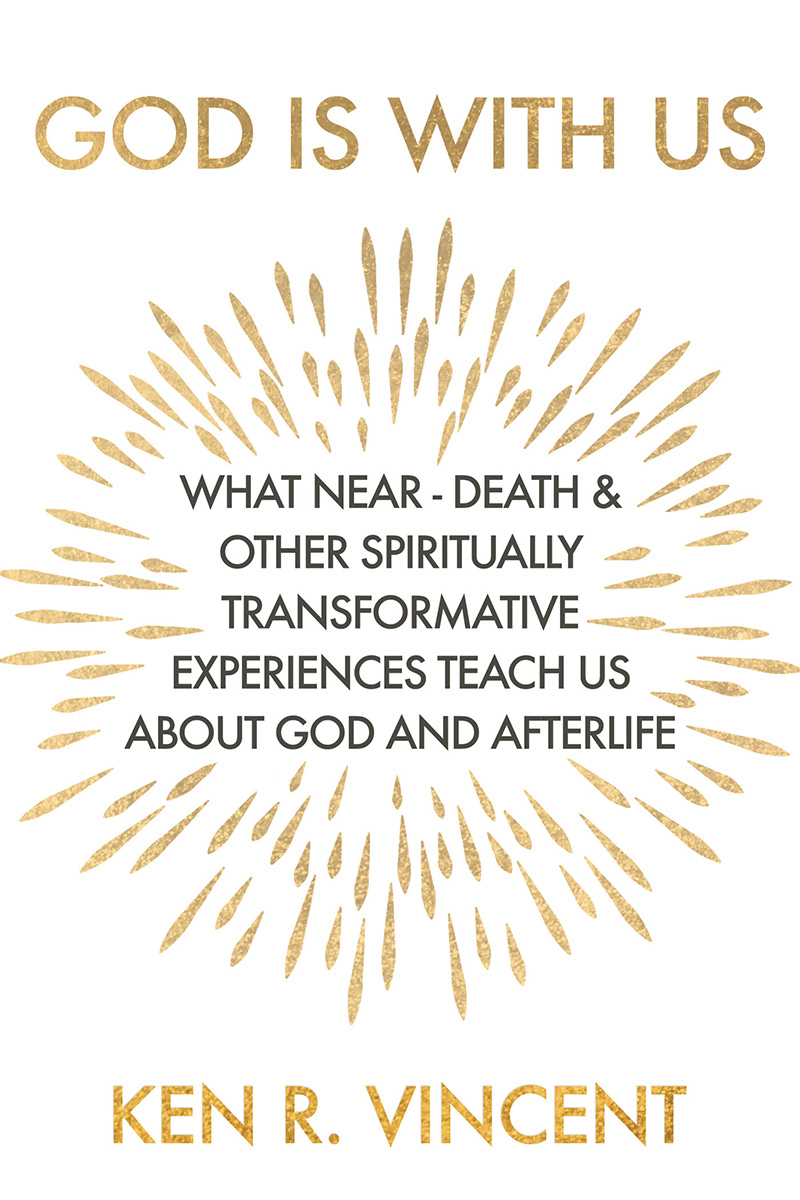Summary
Over a century ago, William James in Varieties of Religious Experience made the case that, “The founders of every church owed their power originally to the fact of their direct personal communication with the Divine.” From the 1960s to the present day, thousands of cases have been recorded that demonstrate religious/spiritual/mystic experiences are quite common.
Numerous social science surveys done over the past 50 years indicate that at least 50% of us have had a Spiritually Transformative Experience. Using the same tools that social scientists and medical researchers employ to study all other facets of human behavior, researchers have gained fresh insights into how humans experience God in the here-and-now and in the hereafter. The results of this research include:
1. God (aka, Ultimate Reality/Great Spirit) is with us and not distant.
2. Judgment is a reality. In the NDE, the experiencer is often brought before a divine judge/being of light for a “life review.” This can be frightening, comforting, or both; nevertheless, it is awesome.
3. Hell is not permanent. Hell is for purification and rehabilitation and not eternal punishment.
4. Religious groups that declare that theirs is the only path to God and salvation are totally wrong. NDE and other religious experiences (e.g., after-death communications, death-bed visions) are replete with stories of people of all faiths and denominations in heaven.
5. “By their fruits you shall know them.” Virtually all of the books on the NDE and other religious experiences mentioned in this book speak to the fact that these events change people for the better.
What is universal is from God; the remainder of religion is cultural.
Praise for God is With Us.
Dr. Ken R. Vincent’s book, God is With Us, stands as an exceptional scholarly study of near-death experiences, after-death communications, and other spiritually transformative experiences (religious or otherwise). He is well-versed in liberal Christian theology, pan-religious studies, and mysticism. He also has a solid working knowledge of near-death experiences and other spiritually transformative experiences. Along these lines, conclusions throughout the book are well-researched and documented. However, Dr. Vincent’s work represents more than an academic endeavor. It may serve to change lives. Specifically, the book expresses the importance of knowing God through first-hand experience rather than through ritual or dogma. The differences are stark. Whereas organized religion often focuses on the pre-conventional morality and behavior, such as obedience and the avoidance of punishment (through fear), first-hand mystical experiences teach the participant a higher order of living, or post conventional thinking, that incorporate unconditional love and the inherent value of all creation. As more people personally experience spiritually transformative experiences, an enlightened view of God and the divine emerges. God no longer becomes a masculine overseer, but the loving center of our essence and being. Perhaps, with time, the world will tilt toward spiritual transformation and ascendance. I think that Dr. Vincent’s work tries to capture that growing momentum for the current age.
Dr. Vincent covers a variety of topics throughout the book, ranging from describing universal religious practices to describing various manifestations of mystical experiences. In terms of the mystical, he provides interesting examples of visions, psychic abilities, after-death communications, near-death experiences, and other spiritually transformative experiences. He aptly points out that mystical experiences of today are not radically different than in the past, say in time of Jesus. Such an observation has ramifications about how God works in the lives of everyday people, even if their experiences transcend the scope of religious acceptance and tolerance. Perhaps too many people “put God in a box” and stymie their own spiritual experience, expression, and growth. The study and exploration of mystical experiences may help tear down that box. Dr. Vincent’s book, I believe, helps open that box.
Universalism becomes a repetitive theme of God Is With Us, especially in the latter chapters. Having studied thousands of near-death experiences, clearly divine Source consistently emphasizes universalism as a means for humanity to overcome ego, divisiveness, hateful intolerance, and prejudice. Dr. Vincent expands the concept of universalism to other divine experiences as well as mystical traditions within Christianity, Islam (Sufism), Hinduism, and Zoroastrianism (His chapter on Zoroaster was particularly new and interesting to this reader). He points out that fear-based dogmas (particularly hell) do not resonate with universalism. From my own experience with the mystical, I whole heartedly concur with the idea of universal salvation. I would also concur with other universalism themes sprinkled throughout the chapters. These themes include unconditional love (sacrifice, forgiveness, kindness, inherent respect) unity of Being/Creation, and flowering personal relationship with Divine/Source.
In sum, Dr. Vincent’s book, God is With Us, serves as a well-written, well-researched, scholarly achievement. There is much to be learn from his book, even from those well-versed in experiential-based spiritual knowledge. Most importantly, the book has the potential to transform people to a higher level of spiritual and moral development. Indeed, God Is With Us may serve to fascinate and liberate the reader.
~ Roy L. Hill, Psy.D., Clinical Psychologist and Author of: Psychology and the Near-Death Experience and Jesus and the Near-Death Experience.

